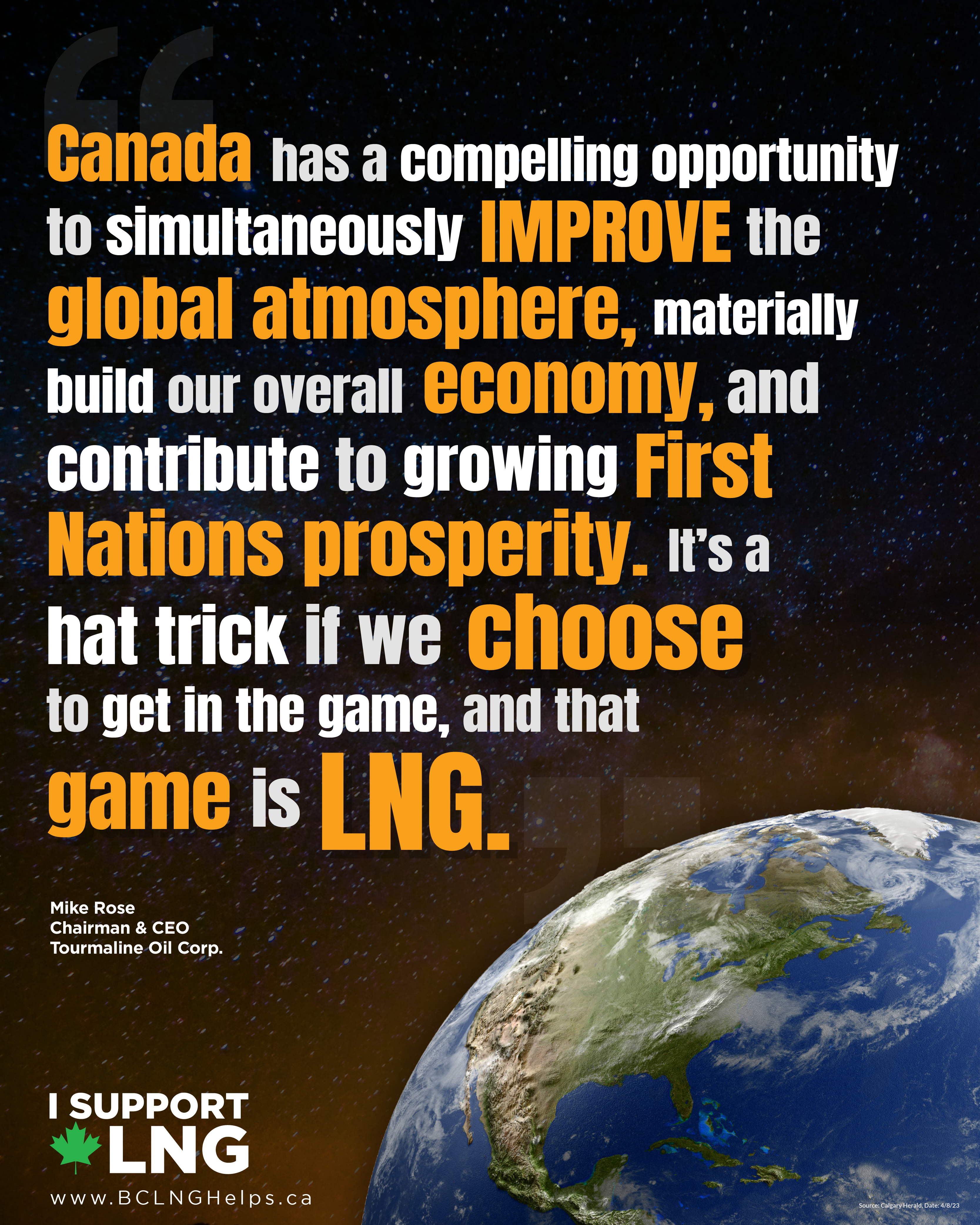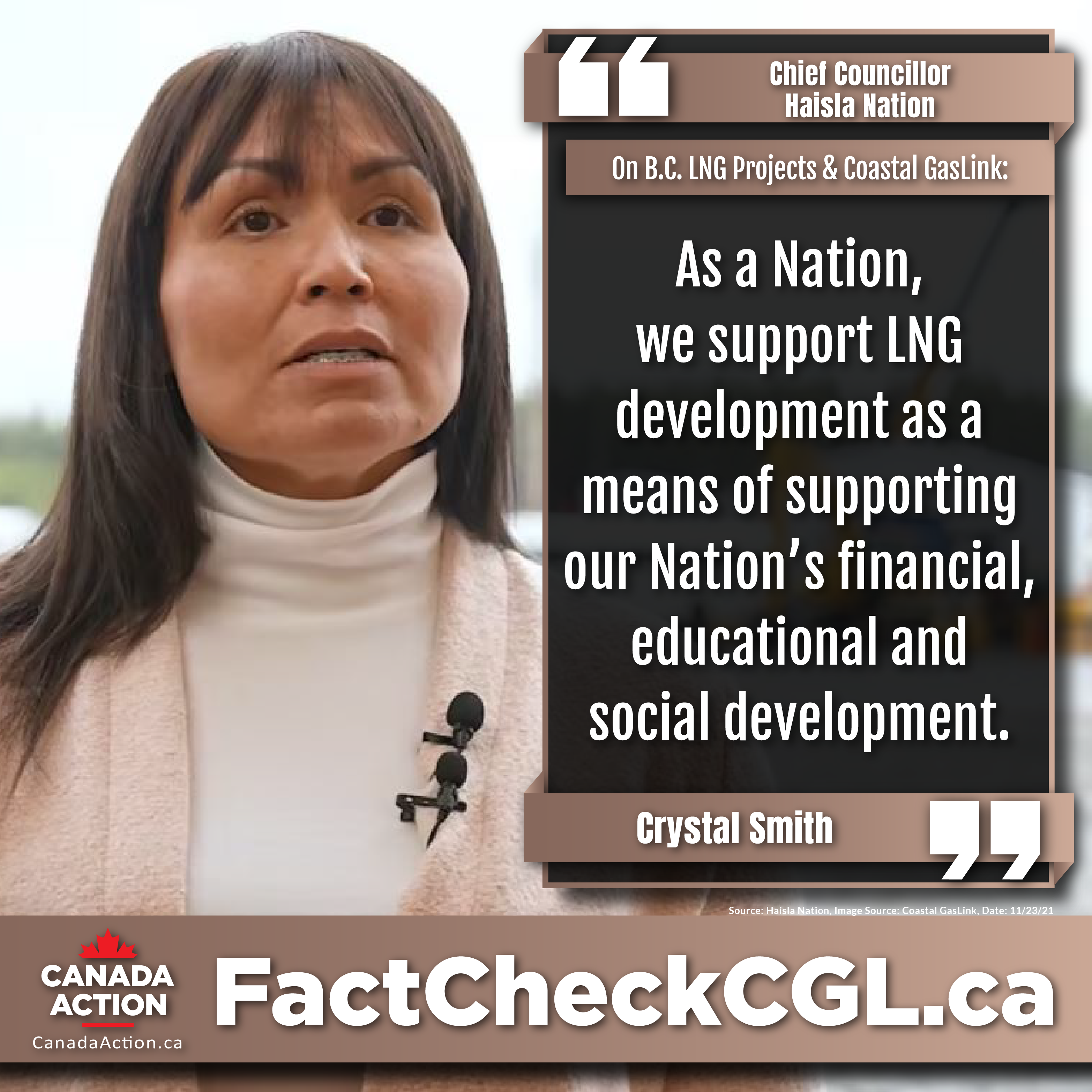William Diaz-Berthiaume – November 22, 2023
OPINION: Natural Gas, Environment, and Indigenous Prosperity—Setting the Record Straight
Despite common misconceptions propagated by the media and other policy actors, it is important to understand that developing our oil and gas sectors in Canada is not only beneficial for our country and the world, but also for the development of Indigenous communities in Canada.
The discourse surrounding oil and gas exploration, particularly on Indigenous land, is often riddled with controversy and negativity. One simply needs to watch the news, scroll on social media or visit a college campus to observe this reality.
Media narratives and policy debates frequently spotlight the perceived conflicts between environmental conservation and economic progress. However, it is crucial to sift through the misinformation and look at the facts.
Fact-Check: “Canada needs to stop producing oil and gas to protect the planet”

We often hear something along the following lines from anti-development activists:
“What’s the point of getting rich if we’re destroying our one and only Earth? Developing our oil and natural gas sector might bring prosperity to Canada, but is it worth destroying our planet?”
Although the intentions behind this type of statement can be genuine, developing our oil and gas sectors does not mean destroying our planet.
These types of statements embody the current mainstream narrative surrounding oil and gas development: If we care about the environment, we should stop the development of oil and natural gas. If you support developing Canada’s oil and natural gas sector, you support destroying the environment.
To that, I say: “If not Canada, then who?”
Global oil demand is projected to increase significantly in the upcoming decades. Italy, Netherlands, and France are already signing long-term liquified natural gas deals (up to 27-years) with Qatar!
Why isn’t Canada signing these deals?
Instead of vilifying responsible producers like Canada, there should be a recognition that responsible development is a necessary part of the solution, contributing to emissions reduction on a global scale. Countries around the world could be relying on responsibly produced and cleaner Canadian oil and liquified natural gas, simultaneously contributing to reducing global emissions, instead of being dependent on other countries with less responsible, less reliable, and less clean practices, which will increases global emissions.
Fact-Check: “Oil and gas development oppresses Indigenous communities and hinders their economic growth”
Although some anti-development groups continue to propagate the idea that oil and gas development harms Indigenous communities in Canada and that Indigenous communities oppose oil and gas development, it’s important to stay grounded in facts.
The fact is that the majority of Indigenous communities from every province and territory across Canada choose to engage directly in the oil and natural gas sector.
As the Canadian Energy Centre stated in 2020, “The notion that Indigenous people in Canada broadly oppose oil and gas projects is becoming an increasingly hard sell.”
Chief Crystal Smith, Elected Chief Councillor of the Haisla Nation, spoke about the disconnect between celebrity climate activists and Indigenous communities. She stated that “industry and to some extent government, have learned to work with First Nations to establish genuine economic reconciliation opportunities, particularly in the energy sector.”
“Focused only on a fractional reduction in Canada’s overall emissions, the stark demand of the climate activists remains oblivious to other basic considerations,” she added. “Already economically vulnerable, most First Nations are heavily exposed to the consequences of adding energy poverty to domestic poverty. If left to climate activists, Indigenous people would be the last to benefit, the last to participate, and the last to be connected to new infrastructure.”
Dale Swampy, a member of the Samson Cree Nation in Maskwacis, Alberta, said in 2019 that Indigenous Canadians want natural resources development.
“One story that always gets attention is of Indigenous Canadians as victims of industry, protesting pipelines and other resource developments as they cross our territories,” he wrote in the National Post. “The truth is, the vast majority of Indigenous communities in Canada are engaged in natural resource development, and on terms that we agree to. Indigenous communities have entered into over 450 agreements with mining companies since 2000, and 58 per cent have a contract or agreement with a forestry company. Across Canada, 25 First Nations produce oil on reserve and 35 produce natural gas.”
Recent news surrounding the Haisla Nation’s Cedar LNG project reaffirms this. Crystal Smith spoke highly of the project, saying that “This is transformational, what we’re doing. Not only in the sense of education and career opportunities, it’s being able to revitalize our culture and our language.”
It’s time to look at the facts, and allow Indigenous communities to continue to play a crucial role in the development of some of the cleanest, most responsibly produced and reliable oil and gas on earth, while helping their own communities’ prosper as well.
In short, a lack of nuance and real understanding is holding Canada back from providing the world with responsibly produced and clean oil and natural gas.
The prevailing dichotomy that portrays environmental responsibility and economic progress through oil and natural gas development as incompatible has fueled a disproportionate resistance to oil and gas development. The reality is more nuanced than a blanket condemnation.
The world is asking for Canadian Energy. If Canada does not step up, other countries with less responsible and clean practices will take advantage of the opportunity. The clock is ticking, and it is time to start relying on facts.
